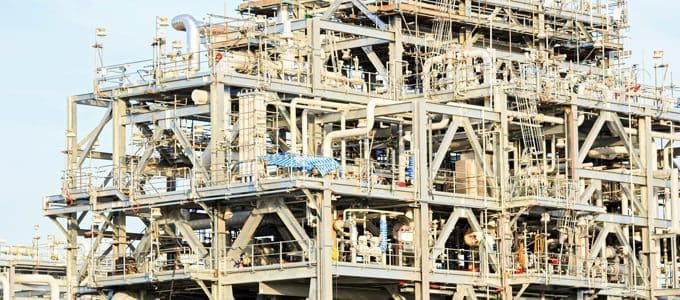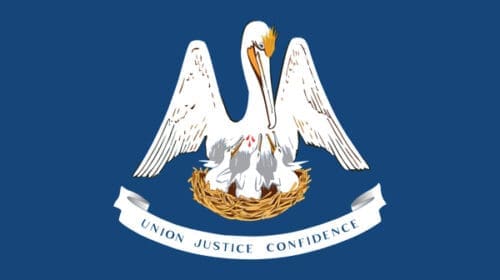The Oil and Gas Production and Distribution Reform Act (S. 1210) is “a step in the right direction toward streamlining permitting while protecting reasonable and sufficient public input in the process,” Erica Bowman, vice president, research and policy analysis, America’s Natural Gas Alliance (ANGA), said on May 14.
“ANGA supports S. 1210, introduced by Sen. [Shelley Moore] Capito [(R-W.Va.)] and co-sponsored by Sen. Heidi Heitkamp [(D-N.D.)],” Bowman said during a U.S. Senate Committee on Energy and Natural Resources hearing on energy infrastructure legislation. “This legislation will help improve coordination between FERC and other permitting agencies involved in federal authorizations for siting interstate natural gas pipelines.”
The hearing is part of a series of legislative hearings regarding a broad energy bill that the committee is assembling. For the hearing, the committee considered 22 bills that address challenges related to energy infrastructure.
“My expectation … is that the best ideas expressed in these bills we are considering will ultimately become provisions of the broader bill that we intend to move later this summer,” Sen. Lisa Murkowski (R-Alaska), chairman of the Senate Committee on Energy and Natural Resources, said during the hearing.
S. 1210, a bill to provide for the timely consideration of all licenses, permits and approvals required under Federal law with respect to oil and gas production and distribution, was among the 22 bills considered during the hearing.
According to Capito’s office, S. 1210 would improve FERC’s permitting and review process by:
- Commitments and cooperation from all federal and state agencies considering any aspect of an application
- Firm deadlines for coordinating agencies to issue associated permits
- Concurrent reviews where each federal and state agency considering an aspect of an application carries out its obligations concurrently and in conjunction with the National Environmental Policy Act (NEPA) review
- Issue identification and resolution to prevent unnecessary delays or permit denials
- Expedited processing to allow an applicant to fund a third party contractor or FERC staff to assist in preparing and reviewing their application
- Accountability, transparency and efficiency by requiring FERC to publish an online regulatory dashboard to track information related to the permit review
Speaking during the hearing on the issue of permitting and siting on federal lands, Bowman said that, one of the largest issues with siting a natural gas pipeline through national park lands is that the project developer needs to go to the U.S. Congress so they can establish the statutory authority with the Secretary of the Department of the Interior for a project corridor.
“That process can take years, and only then can you start the permitting process,” Bowman said.
Bowman applauded the bill’s push for a concurrent review among the federal agencies that are relevant to an application.
“That is very important because it will really help move the decision process along,” she said.
Bowman also noted that the bill establishes an early detector system for issues related to an application.
“That really enables [a developer], especially in this environment, where there is a lot of activism at the state and local levels, to identify issues early and start working on resolutions around those issues with the agencies and greatly improve timelines,” she said.
In her testimony, Bowman said that ANGA also supports the Federal Land Access Act (S. 1196), which was considered by the committee during the hearing. The bill was introduced by Sen. Bill Cassidy (R-La.) and co-sponsored by Sens. James Inhofe (R-Okla.) and Shelley Capito.
“This legislation would amend the Mineral Leasing Act to clarify the authority of the Secretary of the Interior in siting natural gas pipeline rights of way across federal lands,” Bowman said. “As pipeline developers continue to experience project delays and added costs as a result of permitting challenges, we support legislative efforts to provide greater certainty to the siting and permitting of energy infrastructure projects in a timely and cost-effective manner while maintaining appropriate public input.”
Bowman also said that ANGA opposes any legislation that seeks to limit LNG exports by prohibiting the U.S. Department of Energy from approving applications that will result in surpassing export thresholds.
Among the 22 bills considered at the hearing was S. 1237, a bill to amend the Natural Gas Act to limit the authority of the Secretary of Energy to approve certain proposals relating to export activities of LNG terminals. The bill was introduced by Sen. Angus King (I-Maine).
In a May 7 statement, King said that the bill would ensure that the majority of domestically produced natural gas stays in the country.
“Increased natural gas exports will likely lead to increased energy prices,” King said. “That’s why sending more natural gas abroad right now isn’t in the best interest of the country.”
In her testimony, Bowman said that concerns that LNG exports will harm domestic consumers of natural gas are unfounded.
“In their 2015 report to [President Barack Obama], the White House Council of Economic Advisors found that LNG exports would result in economic and national security benefits for the United States,” she said. “A cap on LNG exports volume is unnecessary and will have negative effects on the ability of U.S. natural gas to compete in the global marketplace, staunching our opportunity to capture value from the international LNG market and forsaking the domestic and foreign policy benefits associated with LNG exports.”














